Nokia Lumia 530 vs Nokia Lumia 525 vs Moto E: entry-level specs showdown
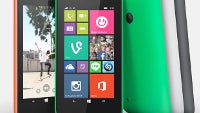
Microsoft just expanded its entry-level portfolio of Windows Phone devices with the Nokia Lumia 530, a successor to the Nokia Lumia 525. The latter, as you probably know, is a slightly refined version of the Nokia Lumia 520, Redmond's best-selling smartphone of all time. Thus, don't expect the new Lumia 530 to woo you with anything in the hardware department – after all, it's a low-end device that is targeted at emerging markets.
Microsoft's latest affordable device is equipped with a quad-core Snapdragon 200 SoC, 512MB of RAM, 4GB of native storage, and a 1430mAh juicer at the rear, which is touted as being able to keep the Lumia 530 kicking and ticking up to 22 days in standby mode. Oh, and it comes with the latest version of Redmond's OS, Windows Phone 8.1. The affordable device will retail at $114 before taxes and subsidies.
Well, okay, but how does the device fare against its predecessor? Does it deliver or is it just a minor improvement, similar to the Android-powered Nokia X2? Frankly said, we suppose that some may solely view Windows Phone 8.1 as a sound enough reason to upgrade to the Lumia 530, but that might not be the case for everybody. Let's check out the spec sheets and see if the Lumia 530 is a trooper, at least on paper. Note that we've also thrown in another affordable champ, the Motorola Moto E, for a good measure.
So, can you distinguish a clear winner or you're on the fence?
|
|
|
|
| Nokia Lumia 530 | Nokia Lumia 525 | Motorola Moto E |
| Dimensions | ||
|---|---|---|
| 4.71 x 2.45 x 0.46 inches 119.7 x 62.3 x 11.7 mm |
4.72 x 2.52 x 0.39 inches 119.9 x 64 x 9.9 mm |
4.91 x 2.55 x 0.48 inches 124.8 x 64.8 x 12.3 mm |
| Weight | ||
| 4.55 oz / 129.0 g | 4.37 oz / 124.0 g | 5.01 oz / 142.0 g |
| Resistance | ||
| Splash | ||
| Features | ||
| Notification light, Interchangeable covers | Interchangeable covers, Notification light | |
| Keys | ||
| Right: Volume control, Lock/Unlock key | Right: Volume control, Camera shutter, Lock/Unlock key | Right: Volume control, Lock/Unlock key |
| Colors | ||
| Black, Orange, Green, White | Black, Yellow, Red, White | Black, White |
| Size | ||
|---|---|---|
| 4.0-inch, 59.22% screen-to-body | 4.0-inch, 58.46% screen-to-body | 4.3-inch, 63.10% screen-to-body |
| Type | ||
| LCD | IPS LCD | |
| Resolution | ||
| 854x480px, 245 PPI | 800x480px, 235 PPI | 960x540px, 256 PPI |
| Colors | ||
| 16 777 216 | 16 777 216 | 16 777 216 |
| Protection | ||
| Corning Gorilla Glass 3 | ||
| Features | ||
| Oleophobic coating | ||
| System chip | ||
|---|---|---|
| Snapdragon 200 | Snapdragon S4 Plus MSM8227 | Snapdragon 200 8210 |
| Processor | ||
| Quad-core 1200 MHz ARM Cortex-A7 | Dual-core 1000 MHz Krait |
Dual-core 1200 MHz ARM Cortex-A7 |
| GPU | ||
| Adreno 302 | Adreno 305 | Adreno 302 |
| Memory | ||
| 0.5GB (LPDDR2)/4GB | 1GB/8GB | 1GB (LPDDR2)/4GB |
| Storage expansion | ||
| microSDXC up to 128 GB | microSDXC up to 64 GB | microSDHC up to 32 GB |
| OS | ||
| Windows Phone | Windows Phone | Android (4.4.4, 4.4.3, 4.4.2) |
| Type | ||
|---|---|---|
| 1430 mAh, Li - Ion | 1430 mAh | 1980 mAh, Li - Ion |
| Rear | ||
|---|---|---|
| Single camera | Single camera | Single camera |
| Main camera | ||
| 5 MP Aperture size: F2.4 Focal length: 28 mm Sensor size: 1/4" |
5 MP (Autofocus) Aperture size: F2.4 Focal length: 28 mm | 5 MP |
| Video recording | ||
| 864 x 480 pixels30 fps, 864 x, 480 pixels, 30 fps Video sharing | 720p (30 fps) | 854 x 480 pixels30 fps, 854 x, 480 pixels, 30 fps Picture-taking during video recording, Video sharing |
| Bluetooth | ||
|---|---|---|
| 4.0 | 4.0 | 4.0 |
| WLAN | ||
| b,g,n Hotspot 802.11 b, g, n | b,g,n Hotspot 802.11 b, g, n | b,g,n Hotspot 802.11 b, g, n |
| USB | ||
| microUSB, USB 2.0 | microUSB, USB 2.0 | microUSB, USB 2.0 |
| Sensors | ||
| Accelerometer, Proximity sensor | Accelerometer, Ambient light sensor, Proximity sensor | Accelerometer, Ambient light sensor, Proximity sensor |
| Location | ||
| GPS, A-GPS, Glonass, Cell ID, Wi-Fi positioning | GPS, A-GPS, S-GPS, Glonass, Cell ID, Wi-Fi positioning | GPS, A-GPS, Glonass |
| Other | ||
| Tethering, Computer sync, OTA sync | Tethering, Computer sync, OTA sync | Tethering, Computer sync, OTA sync |
| Headphones | ||
|---|---|---|
| 3.5mm jack | 3.5mm jack | 3.5mm jack |
| Speakers | ||
| Earpiece, Loudspeaker | Earpiece, Loudspeaker | Earpiece, Loudspeaker |
| Features | ||
| Album art cover, Background playback | Album art cover, Background playback | Album art cover, Background playback |
| Screen mirroring | ||
| Wireless screen share | ||
| Radio | ||
| FM | FM | |
| Additional microphone(s) | ||
| Noise cancellation | ||
| 3G Bands | ||
|---|---|---|
| 8, 1 | 8, 1 | 5, 8, 2, 1 |
| Data Speed | ||
| HSDPA+ (4G) 21.1 Mbit/s, HSUPA 5.76 Mbit/s | HSDPA+ (4G) 21.1 Mbit/s, HSUPA 5.76 Mbit/s, UMTS | HSDPA+ (4G) 21.1 Mbit/s, HSUPA 5.76 Mbit/s, UMTS |
| SIM type | ||
| Micro SIM | Micro SIM | Micro SIM |
| Notifications | ||
|---|---|---|
| Music ringtones (MP3, WAV), Vibration, Phone profiles, Flight mode, Silent mode, Speakerphone | Haptic feedback, Music ringtones (MP3), Polyphonic ringtones, Vibration, Flight mode, Silent mode, Speakerphone | Haptic feedback, Music ringtones (MP3, WAV), Polyphonic ringtones, Vibration, Flight mode, Silent mode, Speakerphone |
| Other features | ||
| Voice dialing, Voice commands, Voice recording, TTY/TDD | Voice dialing, Voice commands, Voice recording, TTY/TDD | Voice dialing, Voice commands, Voice recording, TTY/TDD |
| Officially announced | ||
|---|---|---|
| Jul 23, 2014 | Nov 27, 2013 | May 13, 2014 |
| Prices (MSRP) | ||
| $129 | ||
See the full
Nokia Lumia 530 vs Nokia Lumia 525 vs Motorola Moto E specs comparison
or compare them to other phones using our
Phone Comparison tool
Follow us on Google News
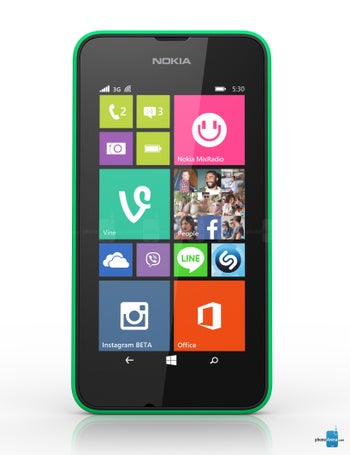
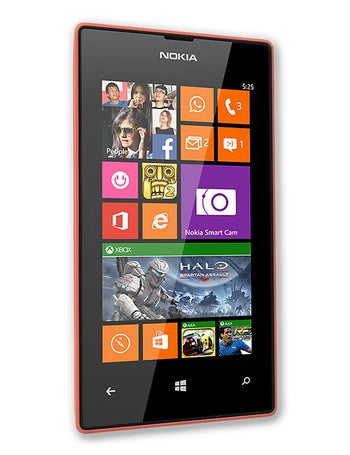
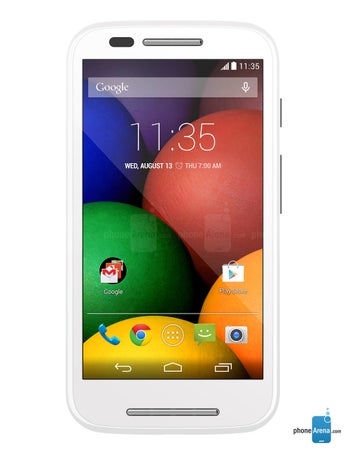












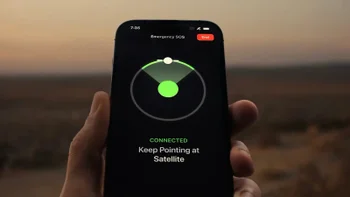
Things that are NOT allowed:
To help keep our community safe and free from spam, we apply temporary limits to newly created accounts: